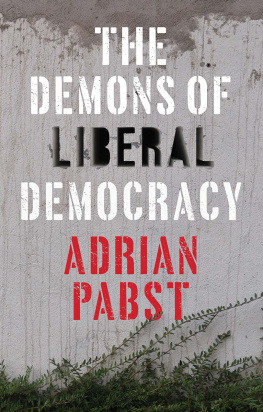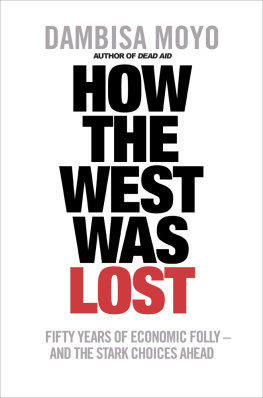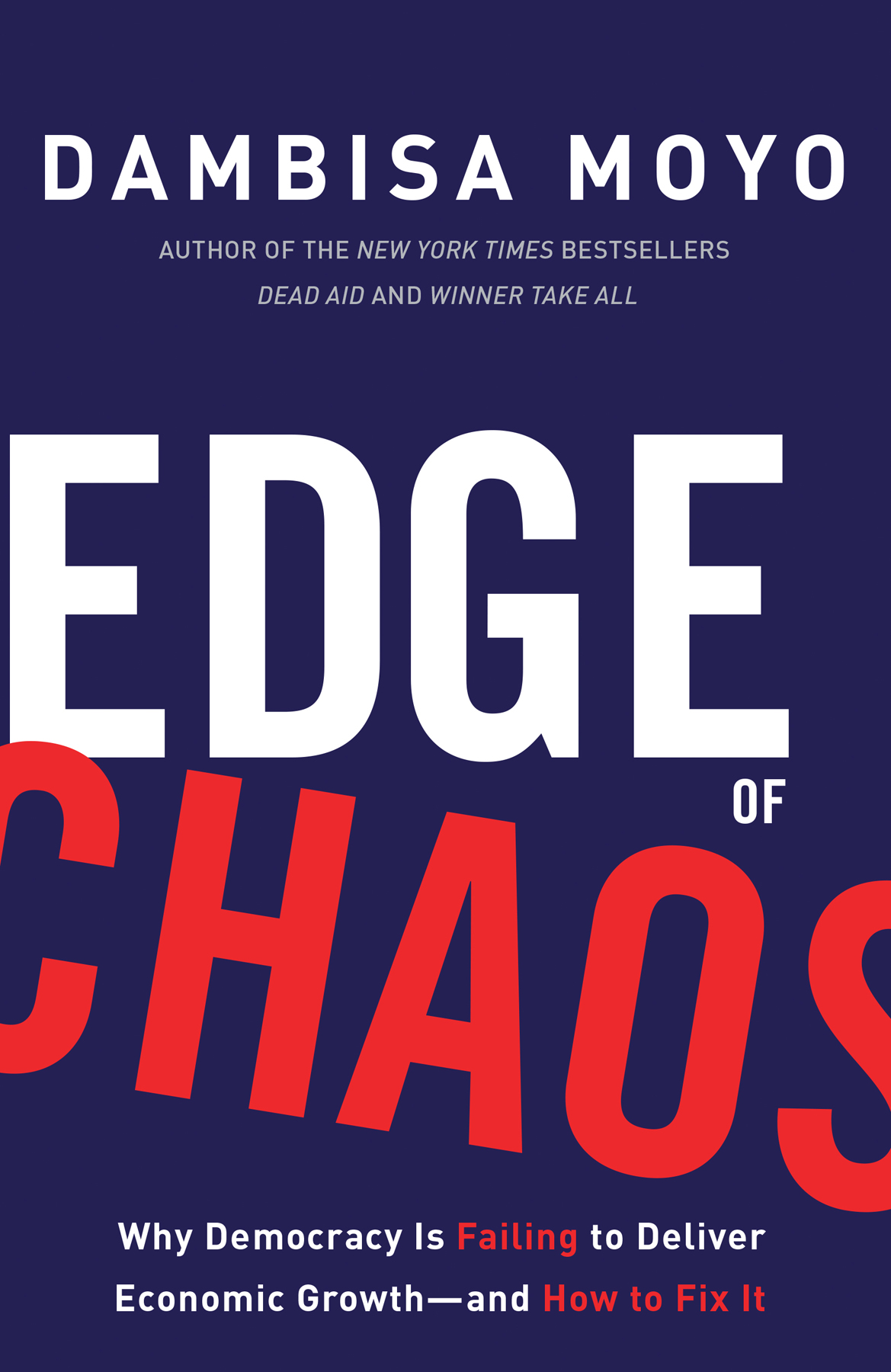Hachette Book Group supports the right to free expression and the value of copyright. The purpose of copyright is to encourage writers and artists to produce the creative works that enrich our culture.
The scanning, uploading, and distribution of this book without permission is a theft of the authors intellectual property. If you would like permission to use material from the book (other than for review purposes), please contact permissions@hbgusa.com. Thank you for your support of the authors rights.
Published by Basic Books, an imprint of Perseus Books, LLC, a subsidiary of Hachette Book Group, Inc. The Basic Books name and logo is a trademark of the Hachette Book Group.
The publisher is not responsible for websites (or their content) that are not owned by the publisher.
How right was Winston Churchill to observe, Writing a book is an adventure. To begin with it is a toy and an amusement. Then it becomes a mistress, then it becomes a master, then it becomes a tyrant. The last phase is that just as you are about to be reconciled to your servitude, you kill the monster and fling him to the public.
Writing this book has been all these things and more.
I completed my PhD at Oxford University in economics, not in politics. And while I continue to be fascinated by economic questionsincluding growth, inequality, and developmentit is increasingly evident to me that politics, and not economics, will be the key driver of human progress and prosperity in years to come.
People (like myself) who have been educated or live in the West tend to have a lot of advice for countries that are blatantly, patently nondemocratic. However, we are less effusive when it comes to how we might improve liberal democracyeven at a time when this political construct appears to be under challenge and the need to reform for the better is urgent.
In this book I seek to motivate a debate on how to upgrade and improve the democratic system. While I spent the majority of my formative adolescent years in a nondemocratic, one-party state, I have spent much of my adult life living and working in established democracies. These lived experiences have afforded me a priceless opportunity to observe, examine, and reflect on the benefits and weaknesses of comparative political systems. In this regard, what I offer here are points for discussion and debate, rather than engraved prescriptions.
As always, I have written a book that I would want to read, recognizing that it may be naturally flawed in ways that many political scientists and politicians will readily identify.
No book project is a solo venture, and without the focus and commitment of many people this book would not have been written.
The team at the Wylie agencyAndrew Wylie, Kristina Moore, and James Pullenhave, as usual, been superb. Over the years I have had the support of great researchers who have each left their imprimatur on the bookRohan Beesla, Chen Liu, and Kim Shechtmanthank you so very much for your diligence and hard work.
A heartfelt thank-you for the herculean efforts of the team at Hachette (Basic Books) who magically transformed a kernel of an idea into the book you see today. Led by the exceptional and indomitable Lara Heimert, Brian Distelberg, Betsy DeJesu, Courtney Nobile, Kelsey Ororczyk, Alia Massoud, Thomas Kelleher, Allie Finkel, and Connie Capone were all supportive at crucial times of the books writing, editing, and production process. In the UK, Tim Whiting and the Little, Brown team have been equally encouraging and immensely supportivethank you so very much. I owe a great debt of gratitude to each of them.
Three people have been pillars of this book project, and although their names do not appear on the front cover, this book is as much theirs as mine: Jeremy Adams, Brandon Proia, and Geordie Young spent countless hours helping me road test the ideas and structure of this book. To them I am eternally grateful, while recognizing that all errors are mine alone.
Kristi Brusa is my backbone, and without her, every aspect of this project, and possibly even my life, would fall apart! Her unwavering dedication, efficiency, and affability make my lifes pursuits that much more seamless and enjoyable. You are so much appreciated.
I cannot adequately thank my familymy parents, Steven and Orlean Moyo, and siblings Mdolole Steven, Leah, and Sekiwho through thick and thin remain unwavering and steadfast in their love, support, and encouragement.
During the last phase of this book my immediate younger sister, Marsha Irene Hlekiwe, passed away, devastating our family. In life she was eternally irreverent, passionate, and determined.
This book is dedicated to her.
Dambisa Moyo
A LMOST THREE DECADES AGO, THE Berlin Wall fell. A period of barely restrained chaos, turmoil, and stagnation across the Soviet bloc had come to an end, and new market capitalist democracies began to emerge not only in the former Soviet sphere but also throughout the developing world, promising economic prosperity and peace for their citizens. Analysts and economists believed the end of communism portended a new era of stability and growth. Yet less than thirty years later, all signs point toward a world once again on the edge of chaos.
Expressions of discontent with the postCold War order have been on the rise, particularly since the 2008 financial crisis. The crisis catalyzed a climate of dissent in the Westthe source of the financial crisisand beyond, in which populist movements challenged leaders and elites, from the Occupy Wall Street protests against inequality and corruption in the United States to anti-austerity marches in Europe and uprisings in the Middle East.
In December 2010, a poor Tunisian fruit vendor named Mohamed Bouazizi lit himself on fire to protest the arbitrary expropriation of his goods and his economic future. Within weeks Bouazizis act of self-immolation precipitated the Arab
Protests have also shaken South America, Asia, Eastern Europe, and Southern Africa, to the extent that by the beginning of 2014 nearly half of the worlds economies (65 out of 150) were expected to be at a high or very high risk of social unrestthe highest rate of risk registered over the past decade.
This wave of rising political anxiety has not been confined to developing nations, as campaigns against austerity, migration, income inequality, and globalization have also gripped developed countries. In November 2014, 100,000 people rioted in the streets, setting fire to vehicles in a march against EU-sanctioned austerityin Brussels! Around the same time, 50,000 demonstrators organized by the Campaign Against a Europe of Capitalism and War swarmed Barcelona in a demonstration against globalization. In July 2016, Meanwhile, the publics revolt against globalization, which many blame for the loss of jobs and the hollowing out of the middle class, culminated in the British vote to exit the European Union and the election of political neophyte and outsider Donald Trump as US president in 2016. Trumps ascendancy, in particular, represented a rebuke of the deeply entrenched political establishment that had dominated US politics for decades.




